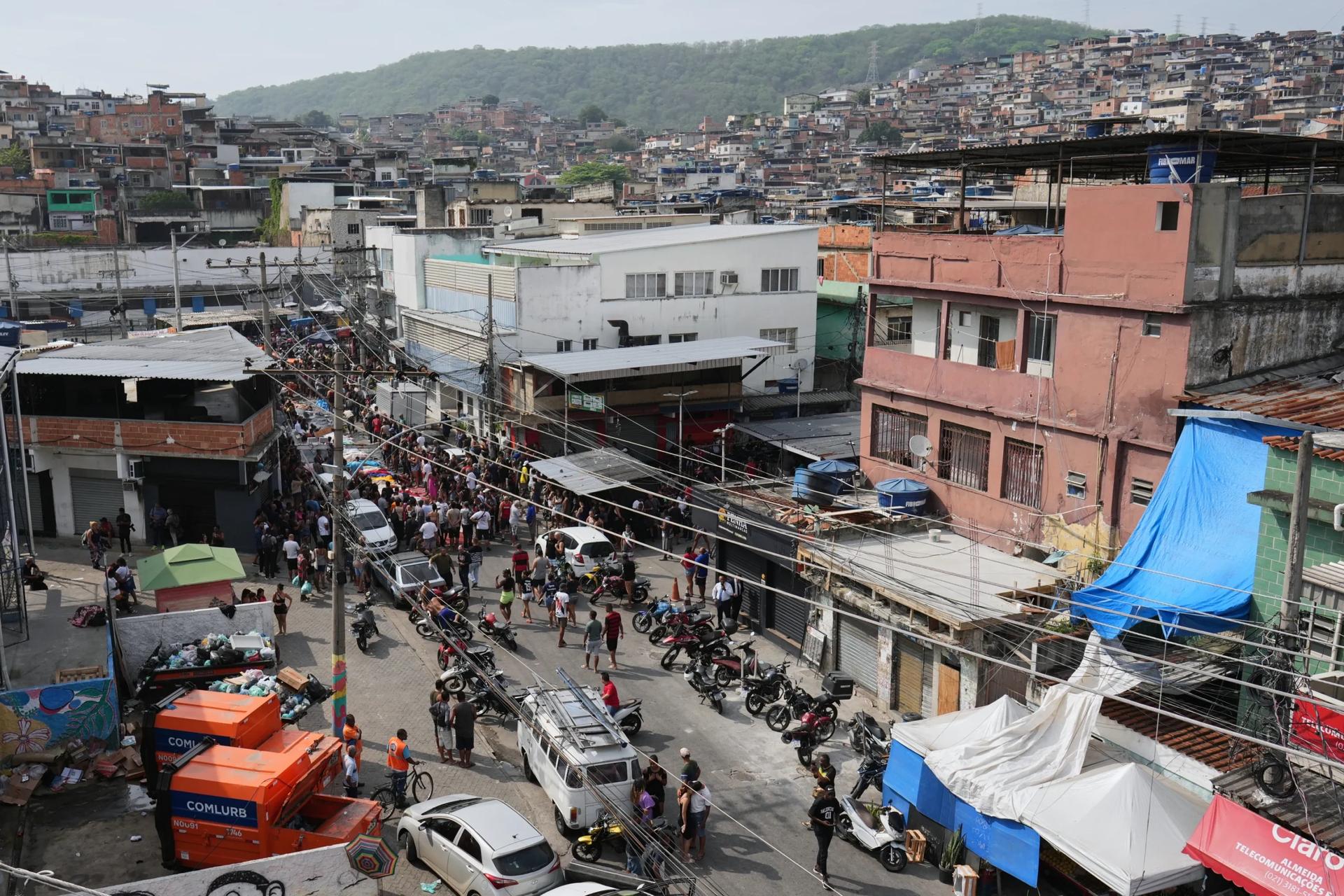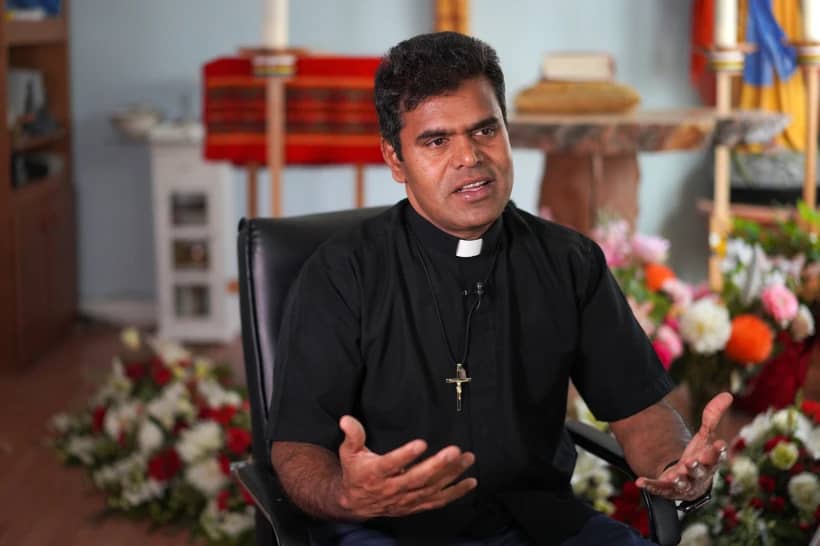SÃO PAULO – It was the deadliest police operation in Brazil’s history, living at least 121 people dead.
It was launched by the government of Rio de Janeiro State on Oct. 28, taking place in two districts of favelas.
Church leaders, including the Archbishop of Rio de Janeiro, Cardinal Orani Tempesta, and the heads of the Bishops’ Conference, expressed their solidarity to the impacted communities and reaffirmed that “life and human dignity are sacred gifts from God.”
The operation mobilized 2,500 agents of the civil and military police forces and had the goal of carrying out arrest warrants for 100 leaders of Comando Vermelho (“Red Command”), also known as CV, a gigantic mafia-like organization that controls drug trafficking and other criminal activities in favelas in Rio de Janeiro and other regions of Brazil.
The State government also claimed that the idea was to impede CV’s territorial expansion. The group is in a continuous dispute with another large organization, known as Terceiro Comando Puro (“Pure Third Command”), known as TCP. As a battle between them was beginning to break out, the police decided to launch its raid, the government said.
The operation began late at night on Oct. 27, with a focus on the so-called complexos (groups of favelas) do Alemão and da Penha, two highly populated areas. The raid, which took several hours, caused disruptions in traffic and temporarily closed 83 schools.
The authorities claimed that the agents tactically forced the heavily-armed criminals to go up a surrounding area of forests, where another group of policemen was already positioned. Entrapped, the criminals resisted for 15 hours in the woods, until 9 pm. According to the government, such a strategy avoided civil casualties.
At first, the police said that 64 people had been killed, 60 suspects and 4 policemen. Later, Governor Cláudio Castro informed that the right number was 58, with 54 being criminals and 4 policemen.
But during the night between 28-29, local residents found dozens of corpses in the woods and dragged them to a central part of the Penha district. The authorities finally revised the numbers and concluded that 117 suspects and 4 policemen were dead as a result of the operation. Footage of the lined-up bodies were published by all major media outlets in the country.
The operation also led to the detention of 123 criminals and the seizure of 118 weapons and 1 ton of drugs.
During a press conference and on his social media accounts, Cláudio Castro only lamented the deaths of the police agents and celebrated the operation as a success. The bloodbath was mostly received with applause by Brazilian internet users.
According to the digital monitoring agency Ativaweb, the operation was commented on 4.3 million posts on social media between Oct. 28-29. Most of them – 63.2 percent – approved the police raid, while 21.8 percent criticized it. Fifteen percent were neutral. Other surveys showed that the majority of Rio de Janeiro’s citizens celebrated the police operation.
“Voters in Rio de Janeiro are quite conservative. Castro’s intention obviously had political motivation. It’s a matter of electoral marketing,” Father Luiz Antônio Pereira Lopes, in charge of the Favelas Pastoral Ministry in the Archdiocese of Rio de Janeiro, told Crux.
A singer and a member of a Charismatic Catholic Renewal band, Castro also recorded two solo albums in 2011 and in 2015. He identifies himself as a Catholic singer and evangelist.
A running mate of Governor Wilson Witzel, who was elected in 2018, he became Rio de Janeiro’s governor in 2020, when Witzel was ousted and later impeached. In 2022, he managed to be reelected. Castro was widely backed by former President Jair Bolsonaro during the campaign, and like his mentor, he has always employed a zero-tolerance-on-crime rhetoric.
During his tenure, the State police perpetrated two of the largest killings in Rio de Janeiro’s history. The one of Jacarezinho, in 2021, which resulted in 28 dead, and the one of Vila Cruzeiro, in 2022, in which 23 people were killed.
“We trust in God’s providence, but we knew something like that would happen again. Police operations are a way to divert attention from him to something else,” Pereira Lopes said, alluding to corruption scandals involving Castro over the past few years.
In 2026, Castro is expected to run for the Senate. Observers think this week’s police raid was conceived to please his – and Bolsonaro’s – constituency, a form of gaining strength for next year’s dispute for Rio de Janeiro’s government and for his own campaign.
“After an operation like that, all TV shows only talk about it. And Castro appears in all of them to talk about violence. He never mentions education, never mentions public hospitals – only violence,” Pereira Lopes added.
According to the priest, the suspects killed were all “little men, cannon fodder,” people that didn’t have real power in the drug and gun trafficking structure.
“The real big bosses live in the upscale gated communities in the southern part of the city. The police would never break into these areas and start to randomly shoot at the people,” he said.
Pereira Lopes has been accompanying the favelas where the operation occurred for decades and attended a meeting there last Saturday, before the massacre. He was advised not to go there now, given the tense atmosphere.
Families of the men killed told the press that the bodies had signals of execution, including gunshot wounds to the back of the head. A woman claimed that her nephew’s body was headless.
On Oct. 28, Cardinal Orani Tempesta released a statement in which he manifested his deep sorrow for the violence and for the losses of the families impacted by the killings.
“In the face of such a painful reality, as this Church’s pastor, I have to express my grief for so much suffering and to reaffirm that life and human dignity are absolute values. Human life is a sacred gift from God and must be always defended and preserved,” Tempesta said.
He called Rio de Janeiro’s residents to reconcile and build peace, avoiding hatred and vengeance.
On Oct. 29, the President and Vice Presidents of the National Conference of Bishops of Brazil issued a public letter in solidarity with Tempesta and with the mourning families.
Other Church leaders demonstrated their repudiation of violence as well. On Oct. 29, Father Edmar Augusto Costa of the Archdiocese of Rio de Janeiro was at the scene where dozens of the dead were laid out in a row. He prayed for them and, without managing to hold on to his tears, asked for peace.
“I don’t see any easy solution for that crisis. We need to rebuild society and invest in education. For the time being, civic institutions must mobilize and denounce those operations,” Pereira Lopes said.













